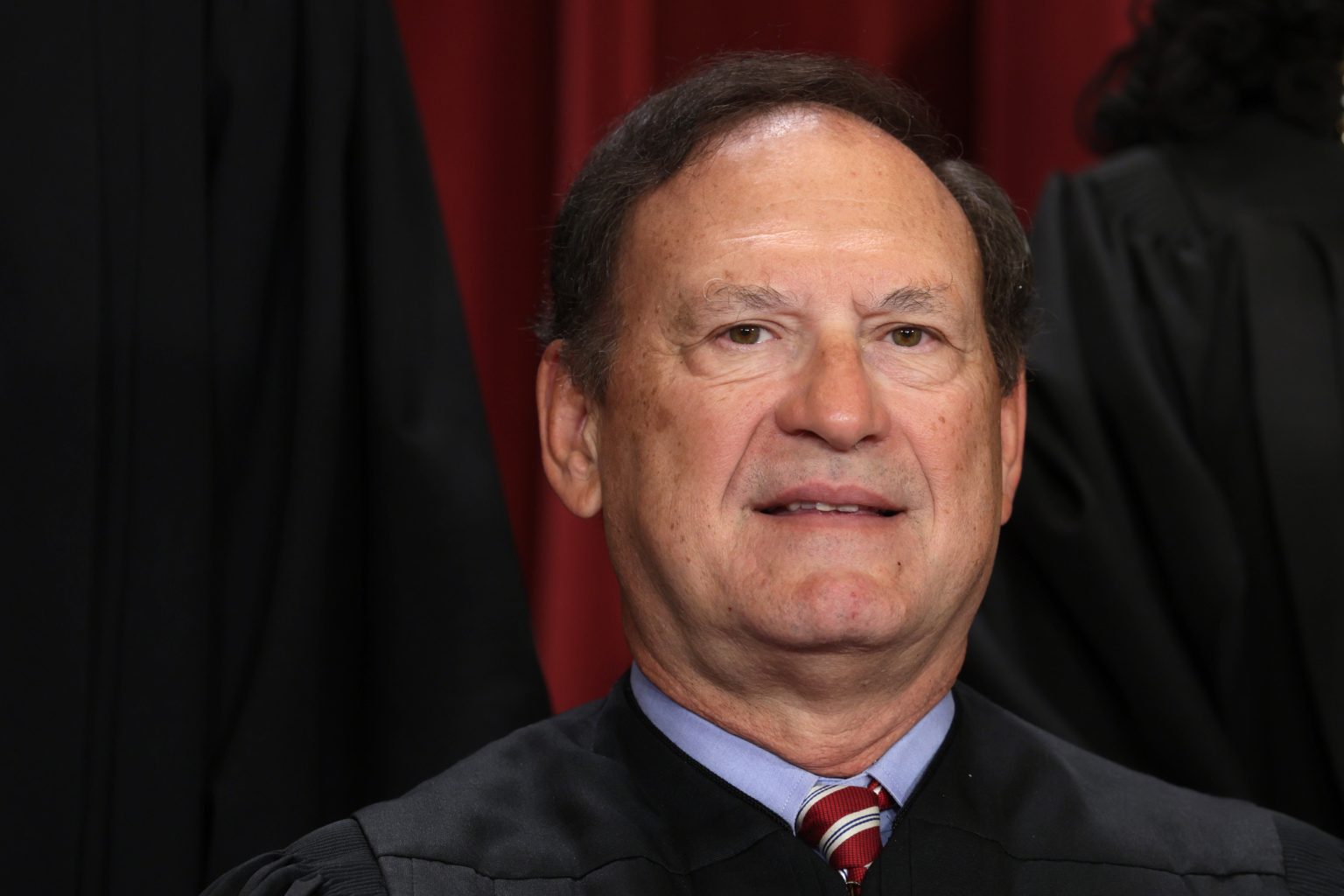Justice Samuel Alito faced criticism after an upside-down American flag was displayed outside his home in January 2021, shortly after the storming of the U.S. Capitol by supporters of former President Donald Trump. Alito’s wife, Martha-Ann, claimed sole responsibility for hanging the flag, saying it was in response to a neighbor’s offensive language on yard signs. The controversy arose just weeks after the Supreme Court heard arguments on whether Trump is protected by presidential immunity in a case related to the 2020 election results.
Legal experts and commentators expressed dismay at Justice Alito’s perceived involvement in a political statement, noting that judges are expected to remain neutral and avoid political affiliations. Some criticized Alito for allegedly shifting blame onto his wife for the flag’s placement, with one constitutional law professor suggesting it was a strategic move. Justice Alito’s decision to distance himself from the flag incident raised questions about his impartiality and the responsibility of Supreme Court justices to uphold the judiciary’s integrity.
The incident involving Justice Alito is part of a broader trend of Supreme Court justices facing scrutiny over their ties to the former president and his supporters. Justice Clarence Thomas has also been urged to recuse himself from cases related to Trump after his wife attended a rally before the Capitol attack. Questions have been raised about Thomas’s connections to conservative figures who may influence his judicial decisions, highlighting concerns about the independence and impartiality of the nation’s highest court.
The controversy surrounding Justice Alito’s involvement in the flag incident underscores the challenges facing the judiciary in maintaining public confidence and upholding the rule of law. As the Supreme Court plays a crucial role in interpreting the Constitution and safeguarding civil liberties, any perception of bias or political influence among its members can undermine trust in the legal system. The ongoing debate over justices’ potential conflicts of interest highlights the need for transparency and accountability in the judicial branch.
The Supreme Court’s handling of cases related to the 2020 election and presidential immunity will serve as a test of the institution’s commitment to upholding the rule of law and safeguarding democracy. As the high court deliberates on these pivotal issues, the actions and statements of individual justices like Alito and Thomas will come under increased scrutiny, as will their ability to remain impartial in politically charged cases. The outcome of these cases will have far-reaching implications for the balance of power between the executive, legislative, and judicial branches of government.
In the midst of these controversies and challenges, the role of the judiciary in upholding democratic norms and constitutional principles remains paramount. The public’s trust in the Supreme Court’s integrity and impartiality is essential for a functioning democracy, and any perception of bias or political interference can erode that trust. As the Supreme Court continues to navigate politically fraught cases and divisive issues, the actions of individual justices, including their personal associations and public statements, will be closely scrutinized, underscoring the delicate balance between judicial independence and accountability in a democratic society.







